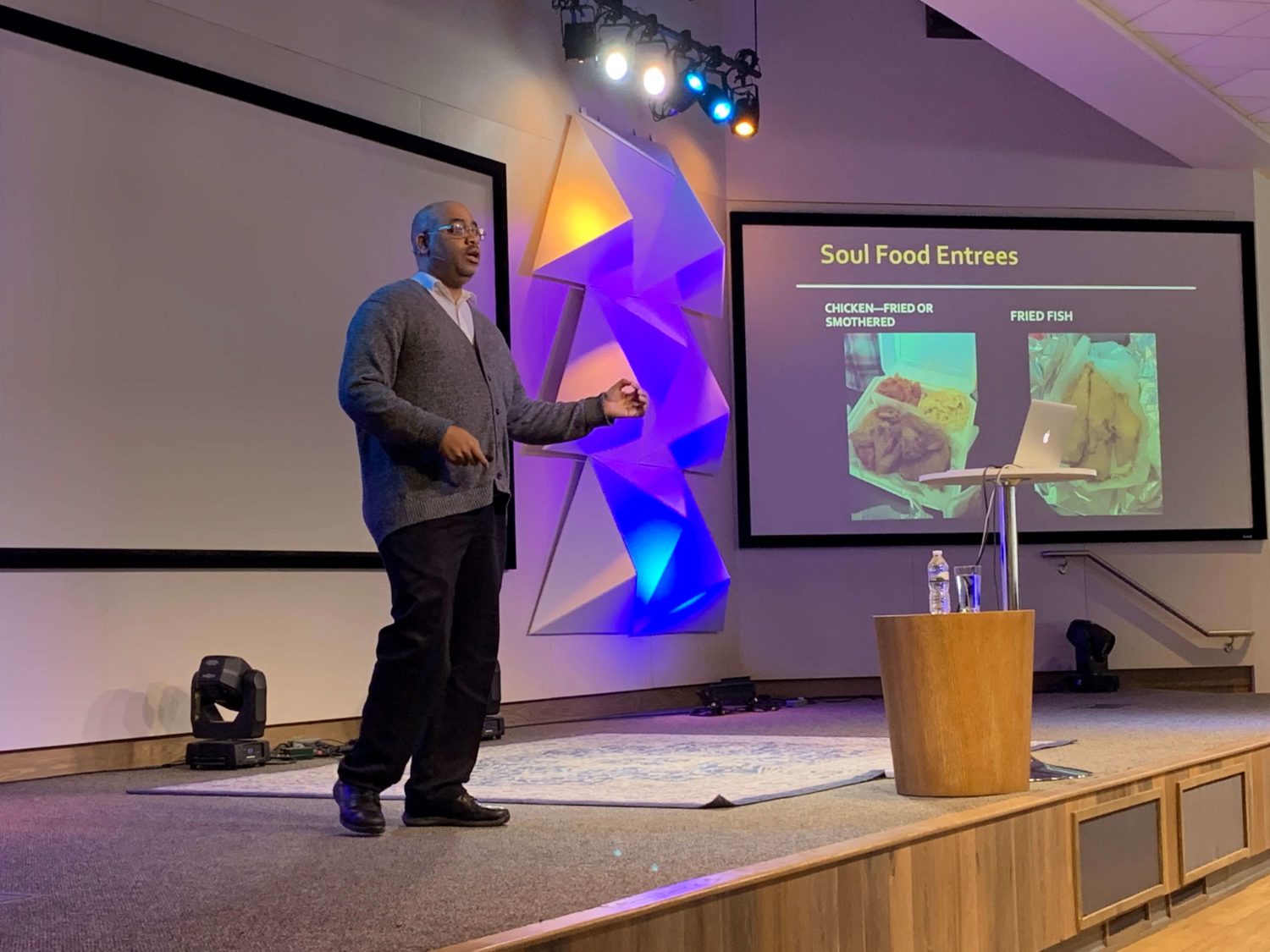
“Sometimes I wonder if the burning bush Moses encountered smelled like hickory,” Author and Culinary Historian Adrian Miller joked at a lecture about barbecue and soul food.
Miller authored Soul Food: The Surprising Story of an American Cuisine, One Plate at a Time which won a James Beard award, and most recently The President’s Kitchen Cabinet: The Story of the African Americans Who Have Fed Our First Families, from the Washingtons to the Obamas (2017) which received a nomination for the 2018 NAACP Image Award.
He gave a lunchtime lecture on African American food traditions to an audience of over a hundred community members themed around “A Theology of Barbecue & Soul Food” at Upper House on Wednesday.
Madison365 is the media sponsor of that event.
“For us, it was this really unique convergence of the academic rigor that somebody’s bringing in, the connection with church and theology in a way, and what’s fun,” said Daniel Johnson, Director of Technology and Campus Ministry Engagement for Upper House.
Upper House, a center for Christian study, gathering, and learning, sits at the heart of the University of Wisconsin- Madison’s campus in between University Avenue and Johnson Street on East Campus Mall. Johnson said Miller’s work fits into the context of the organization’s mission while offering a perspective on a culture historically underrepresented.
Miller currently serves as the Executive Director of the Colorado Council of Churches and lives in Denver. He shared aspects of his church life and home cooking throughout the presentation. He also gave a shout out to Ashley’s Bar-B-Que in Milwaukee.
“A lot of church life were also social events so there was cooking and barbecue at these events,” Miller said.
He said one of the untold truths about slavery was that plantation owners often allowed enslaved Africans to maintain gardens and grow their own food. Their diets encompassed foods many would classify as vegan today. Miller explained over time, we began to see the replication of West African meals in North America as well as African American influences on European cuisine.
Miller also said while historians believe the word “barbecue” originates from the Arawak word “barbacoa,” the tradition of smoking entire animals did not just originate from the Caribbean. Instead, his research points to smoking traditions across North America.
African Americans traditionally reserved soul food and barbecue for special occasions, he said.
“The church played an important part of helping ease the transition from rural life to city life and often provided food,” he said.
Miller spoke about the importance of the church during The Great Migration between 1916 and 1970. He also said barbecue events began to downscale in the 1920’s. People also began barbecuing animal parts rather than entire animals.
“Barbecue in the 20th century has different functions,” he said.
Miller said while enslaved Africans and early African Americans often hosted large religious gatherings cooking entire animals, African Americans still gather with their individual church communities today. Whether it’s for a church picnic, barbecue competition or fundraiser, African Americans continue to pass on these traditions.
“In African American barbecue circles, it’s not male dominated. African American women have been on the barbecue scene since the early days,” Miller said.
He also spoke about food justice, telling the story of a pastor in Northern Mississippi who decided to ban fried chicken in hopes of increasing health outcomes for his congregation. Miller said more churches have been looking at food justice as a new ministry, expanding access to food to families in need and providing healthier options.
“If soul food is celebration food, there are going to be consequences for our body for eating it all the time. I think that’s why soul food gets a bad rep because we’re the ones eating it out of context,” Miller said.



